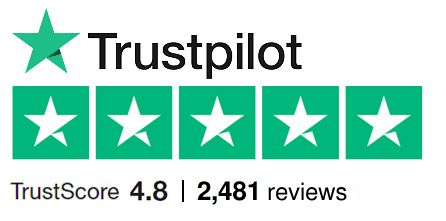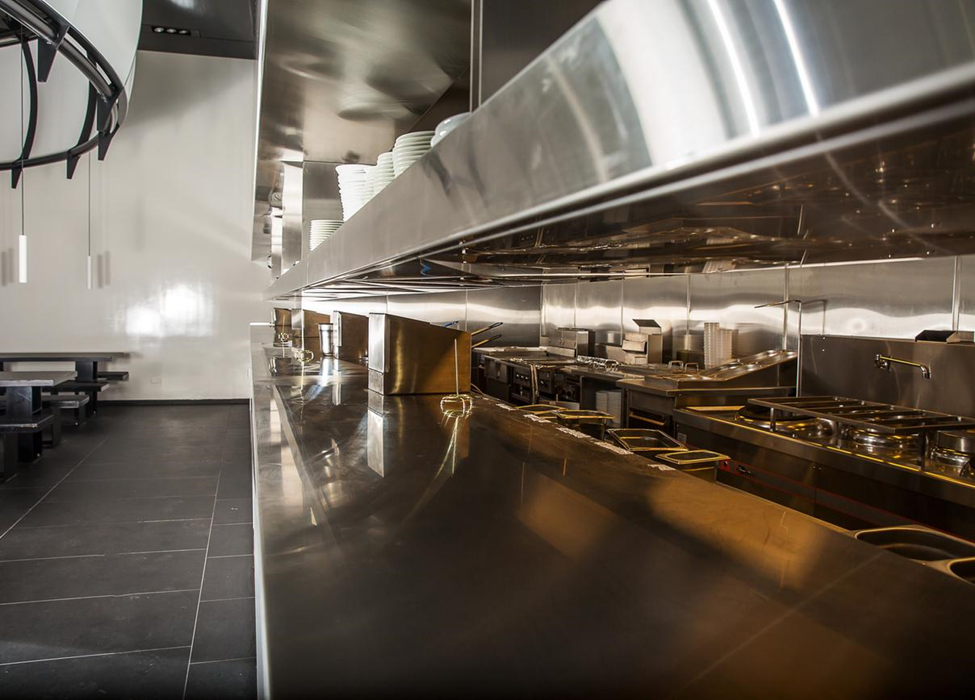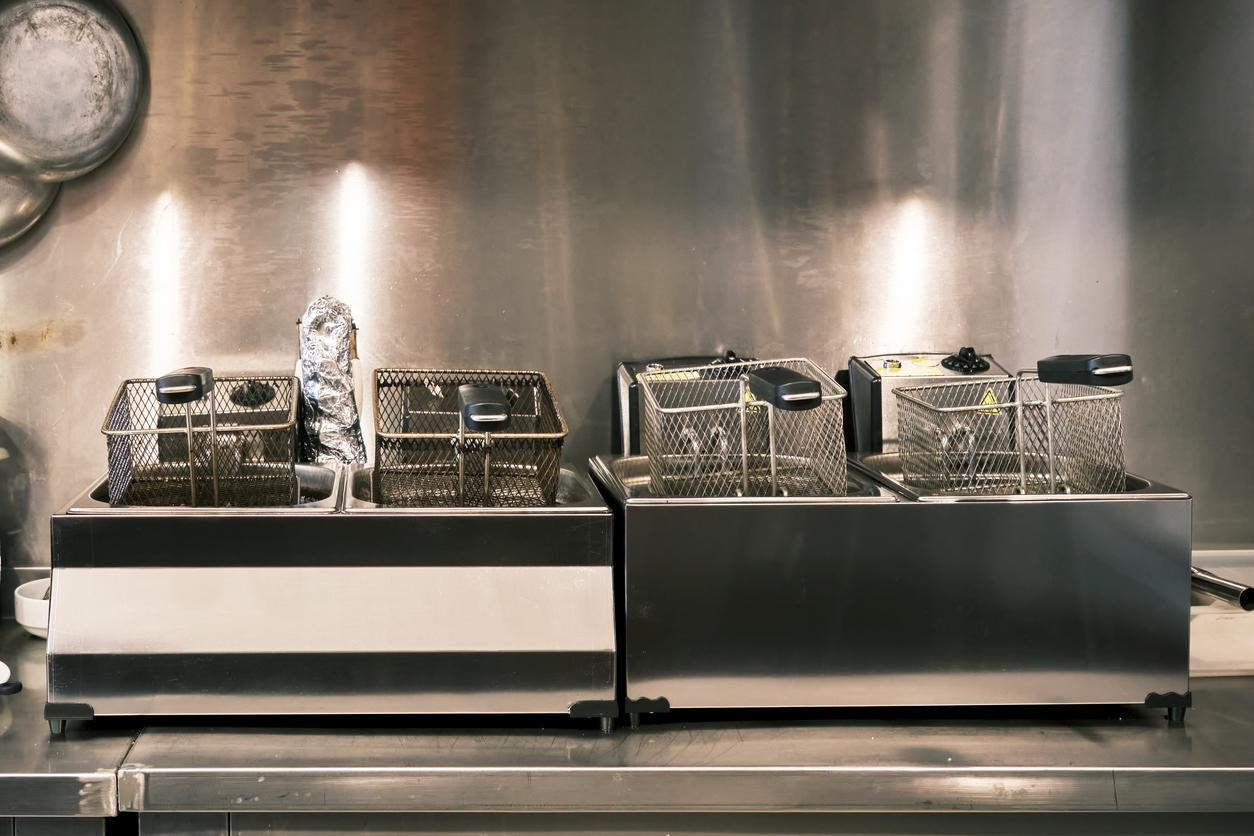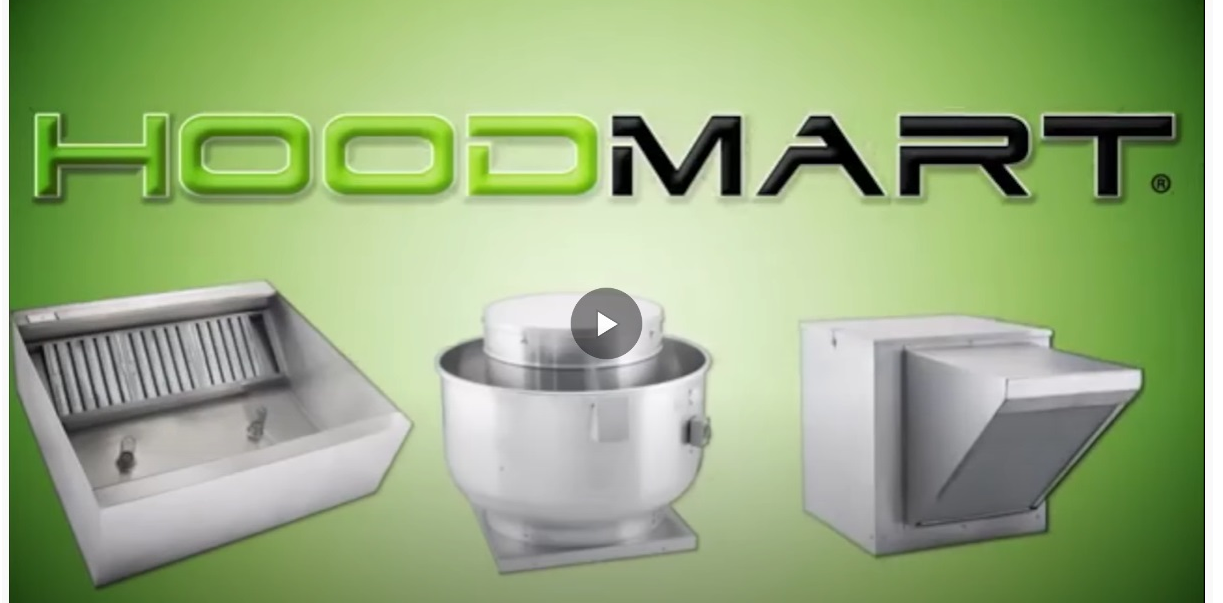We use cookies to help improve our services, make personal offers, and enhance your experience. If you do not accept optional cookies below, your experience may be affected. If you want to know more, please read the Aprende más.
Safer Cooking Strategies
Safer Cooking Strategies
- May 31, 2017
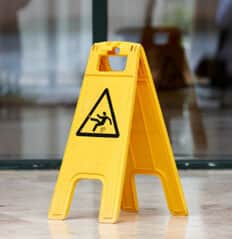
When it comes to Restaurant Safety, people generally understand – with some regular reminding – that it’s not a good idea to run on wet floors or to handle sharp objects loosely or carelessly. And much has been written about protecting customers from the hazards of food-borne illnesses.
Given that foodservice workers face considerable risks in kitchens where there are open-flame cooking surfaces as well as other high-temperature cooking appliances, it pays to review some effective strategies for staying safe in the midst of every kitchen’s primary activity: Cooking.
According to one expert, fumes from cooking charred foods can be just as concerning as the carcinogens created in the food as a result of the charring process.
Tom Johnson, founder of Johnson Risk Services, explains, “Line cooks and chefs are shown to have a greater incidence of cancer than the general population.” He goes on to point out that it’s common knowledge that women in China are afflicted with cancer more frequently than are men – even though men are known to smoke tobacco with greater regularity than women.
The reason? Chinese females are tasked with performing all of the cooking tasks. “People who live downwind from certain foodservice operations that exhaust fumes from high-temperature cooking of animal proteins also face these risks,” he says.
Because of this, restaurant owners should be even surer to install the appropriate Commercial Kitchen Ventilation system – both to guard against potential fire hazards as well as to protect their employees’ health.
Another method for mitigating the charring process is to consider cooking at lower temperatures whenever possible. Cooking a pizza at 500 degrees F, says Johnson, would be a safer method, so long as the pizza’s temperature doesn’t exceed 212 degrees F – the point at which it would begin releasing gases.
Johnson also advocates for cooking without flames, if only to cut down on exposure to carbon monoxide.
Have you conducted a safety checkup of your commercial kitchen to see whether your equipment adequately protects both your employees and your property? Contact Hood Mart with any kitchen safety questions or concerns.Blog Home
- ACCESSORIES(8)
- Do-It-Yourself: Installing Range Hood Ducts
- Reasons for Buying a Fire Suppression System
- Accessory Guide For Your Exhaust Hood System
- HoodMart Guide To Roof Curbs
- HoodMart Exhaust Hood Lighting Guide
- Grease Traps 101
- The Importance of Access Panels
- When Should You Replace An Exhaust Hood Filter?
- Don't Go Cheap With Exhaust Hood Air Filter Replacements
- Rooftop Exhaust Fan Installation Guide | Hoodmart
- The Battle Of The Exhaust Hood Grease Filters
- Round vs Rectangular Exhaust Hood Duct Systems
- Dedicated Outdoor Air Systems DOAS and AHRI 920 - What Does This Mean For Your Kitchen?
- FAN FACTS(5)
- How to Optimize Makeup Air
- Type 1 VS Type 2 Hood Systems
- The Importance Of Air Ventilation Hood Systems
- The Importance of Tempered or Heated Makeup Air Units
- Upblast Exhaust Fans and Why You Need Them | HoodMart
- Why Your Restaurant Needs A Tempered Heated Make-Up Air Supply
- Protecting Your Ventilation and HVAC Equipment from Severe Weather
- The Benefits Of A Rooftop Grease Containment System
- Exhaust Hood Not Working? Here's What To Do Next
- The Importance Of Makeup Air Units In Your Exhaust Hood System
- Fundamentals Of Exhaust Fan Louvers
- Save Money And Go Green With Direct Drive Make-Up Air
- Exhaust Fan 101 for Industrial Kitchens
- Exhaust Fan 101 for Industrial Kitchens
- What are Make-Up Air Systems and Why Does Your Commercial Kitchen Need One?
- FIRE EQUIPMENT SAFETY(7)
- Food Truck Safety
- Exhaust Hoods For Residential Kitchens In Commercial Buildings
- Dedicated Outdoor Air Systems DOAS and AHRI 920 - What Does This Mean For Your Kitchen?
- What Size Exhaust Fan Does Your Kitchen Need?
- Why are Commercial Fire Suppression Systems Important? | Hoodmart
- What is an ANSUL Fire Suppression System?
- Kitchen Fire Suppression System Training Guide | Hoodmart
- Understanding Local Fire and Safety Regulations for Kitchen Hoods
- Year-End Kitchen Safety Check: Assessing Your Fire Suppression System
- Mobile Food Trucks and Fire Safety: Kidde vs. Ansul Systems
- FOOD TRUCK(22)
- Reasons Why Food Truck Businesses Falter
- Crazy Concession Stand Classics
- To-Do List for Spring Food Truck Openings
- Can Your Food Truck Pass OSHA Inspections?
- Concessions Go to the Movies
- Outfitting a Floating Pizzeria
- Social Media Engagement for Food Trucks
- Ready for Food Truck Franchising?
- Tracking Food Trucks Via GPS
- Food Truck Fare Is Booming
- Going Beyond Concession Basics
- Breezing Through a Food Truck Health Inspection
- America’s Wackiest Concession Stand Foods
- Winter Survival Guide For Your Food Truck
- HoodMart Food Truck Cleaning Guide
- HoodMart Spring Food Truck Check List
- Food Truck Fire Safety
- Spring Cleaning For Your Food Truck
- Springs Almost Here - Get Your Food Truck Ready
- Keeping Cool With Food Truck Exhaust Hood Systems
- Get Your Food Truck Ready For Spring / Summer 2022!
- Avoiding Common Food Truck Health Code Violations
- Is It Time To Upgrade To A Food Truck
- Upgrading Your Food Truck Exhaust System With The Hoodmart Concession Integrated Low Box Hood & Fan
- Safely Using Deep Fryers Within A Food Truck
- What Kind of Venitlation Hood do you Need for a Food Truck? | Hoodmart
- Can You Buy a Used Range Hood for a Food Truck?
- What Kind of Fire Suppression System Do You Need for a Food Truck?
- Mobile Food Trucks and Fire Safety: Kidde vs. Ansul Systems
- The Importance of Capturing and Filtering Grease-Laden Vapors in Food Truck Vent Hoods
- GHOST KITCHENS(1)
- HOOD FACTS(46)
- The Automating of Fast Food
- Kitchen Venting and High-Rise Buildings
- Commercial Kitchen Ventilation Basics
- A Range Hood Makeover
- Designing Around Range Hoods
- Building an Outdoor Kitchen
- Colonial Kitchens, Pre-Hood Mart
- Commercial Kitchen Design Considerations | HoodMart
- Home Kitchens of Famous Chefs
- Exhaust Hood Specifications, Explained
- Range and Exhaust Hood Buying Tips for Beginners
- Creative Uses of Exhaust Hoods
- Replacing an Exhaust Hood
- Types of Commercial Exhaust Hoods
- Short Cycle vs. Long Cycle Exhaust Hoods
- Reasons to Buy an Exhaust Hood Directly from the Manufacturer
- What’s in a Hood: the Varieties of Commercial Kitchen Exhaust Hoods
- Commercial Pizza Cooking and the Role of Pizza Hoods
- Exhaust Hood Pre-Purchase Guide
- HoodMart's Exhaust Hood Starter Guide
- Restaurant Exhaust Hood Q&A
- Complete Exhaust Hood Setup Overview
- Benefits of an Exhaust Hood In Your Commercial Kitchen
- Do You Need an Exhaust Hood System for Your Kitchen?
- Preparing Your Restaurant For Re-opening After COVID-19
- SBA's Restaurant Revitalization Fund Notes & How To Apply For Your Restaurant
- Quick Tips To Help With Measuring For An Exhaust Hood System
- HoodMart - The ONLY Certified Green Hood Ventilation Manufacturer
- Exhaust Hoods For Residential Kitchens In Commercial Buildings
- Dedicated Outdoor Air Systems DOAS and AHRI 920 - What Does This Mean For Your Kitchen?
- Protecting Your Ventilation and HVAC Equipment from Severe Weather
- Keep Customers Warm This Holiday Season With Tempered Heated Make-Up Air Supply
- Upblast Exhaust Fans 101
- New Year, Clean Kitchen - Kick Off The New Year With An Exhaust Hood Deep Cleaning
- First Time Exhaust Hood Buying Tips
- The Time To Start Going Green With Your Restaurant Is NOW
- NFPA 96 And Your Commercial Cooking Operation
- Get Your Food Truck Ready For Spring / Summer 2022!
- Exhaust Hood Not Working? Here's What To Do Next
- Maximizing The Ventilation In Your Commercial Kitchen
- The Importance Of Makeup Air Units In Your Exhaust Hood System
- What To Expect With An Exhaust Hood Installation In A Commercial Kitchen
- The Importance Of Regular Maintenance For Your Exhaust Hood System
- How Often Should You Be Cleaning Your Kitchen Exhaust Hood & Ventilation System?
- What Size Exhaust Fan Does Your Kitchen Need?
- Fundamentals Of Exhaust Fan Louvers
- Save Money And Go Green With Direct Drive Make-Up Air
- Keeping Your Restaurant Healthy During Winter Months
- Keep Your Kitchen Cool With A Type II Condensate Hood
- Do Not Neglect Your Exhaust Hood Ductwork
- Avoiding Common Food Truck Health Code Violations
- Is It Time To Upgrade To A Food Truck
- Upgrading Your Food Truck Exhaust System With The Hoodmart Concession Integrated Low Box Hood & Fan
- Safely Using Deep Fryers Within A Food Truck
- Swamp Coolers - A Good Makeup Air Solution for Your Kitchen?
- Kitchen Hoods: Why They are Essential to a Commercial Kitchen
- How to Vent a Commercial Range Hood
- Kitchen Hoods: Why They are Essential to a Commercial Kitchen
- How to Clean a Commercial Range Hood? | Hoodmart
- How Many CFM Do You Need for a Commercial Ventilation Hood? | Hoodmart
- What are the Food Truck Range Hood Requirements?
- How to Install a Commercial Kitchen Hood
- Commercial Kitchen Exhaust Requirement Considerations | Hoodmart
- The Latest Trends in Commercial Kitchen Hood Design
- The Top Benefits of Installing a Kitchen Hood in Your Commercial Kitchen| Hoodmart
- How Much Does a Commercial Hood System Cost?
- How to Maintain Your Kitchen Hood for Optimal Performance | Hoodmart
- The Advantages of Investing in a High-Quality Commercial Kitchen Hood | Hoodmart
- Kitchen Fire Suppression System Inspection Checklist | Hoodmart
- What to Expect When Installing Stainless Steel Wall Panels
- The Importance of Proper Ventilation in Concession Trailer Hoods
- The Different Types of Commercial Kitchen Hoods and Their Uses
- A Guide to Pizza Oven Hood Packages
- The HoodMart Guide To Cleaning and Maintaining Your Exhaust Hood System
- Do You Need an Exhaust Hood System for Your Kitchen?
- Troubleshooting Noisy Commercial Exhaust Hoods
- How to Effectively Clean Your Commercial Kitchen Hood Filter
- NAKS, Inc. Announces the Acquisition of Stainless Specialties, Inc.
- What to Look for in a Commercial Hood Manufacturer
- Environmental Impact: How Ventless Hoods Contribute to Sustainability
- Selecting the Ideal HoodMart System for Your Restaurant
- The Experts at HoodMart Make It Easy to Choose the Right Hood
- Hood Placement and Clearance to Combustibles - What it Means & Why it Matters
- Understanding Short Cycle Hood Systems | HoodMart
- Expanding Your Business: The Key Role HVAC Installers Play in Hood Installation
- Find An Installer for Your Next Kitchen Project with HoodMart’s Installer Finder!
- Four Factors to Consider When Selecting a Commercial Vent Hood
- PRODUCT CARE(31)
- Restaurant Fire Safety Refresher
- Safer Cooking Strategies
- Private Large Kitchen Safety
- Restaurant Safety Dos and Don’ts
- Vent Safety During Snowstorms
- Only Good Teamwork Can Prevent Kitchen Fires
- Minimizing Bacteria in Commercial Kitchen Hoods
- Keeping Your Hood Exhaust System Clean
- Cleaning a Kitchen Exhaust System, in Steps
- Preventative Maintenance Guide For Your Exhaust Hoods
- The HoodMart Guide To Cleaning and Maintaining Your Exhaust Hood System
- Troubleshooting Noisy Commercial Exhaust Hoods
- Spotting A Grease Leak In Your Exhaust Hood
- Steps To Ensure Your Exhaust Hood Is Running Efficiently
- Avoiding Commercial Kitchen Inspection Violations
- Commercial Kitchen Fire Prevention TIps
- What To Ask When Hiring A Professional Exhaust Hood Cleaning Service
- When To Schedule Exhaust Hood Cleaning and Maintenance
- Rooftop Grease Buildup and How To Prevent It
- Preventing Kitchen Fires This Holiday Season
- The Average Cost of a Commercial Exhaust Hood Cleaning
- How To Avoid Issues With An Inspector
- Start Your New Year Right With An Exhaust Hood Cleaning
- Stay Safe and Avoid Kitchen Fires This Holiday Season
- Items of Concern When Inspecting Your Exhaust Hood System
- Hoodmart Guide to Ductwork Cleaning
- HELP - Our Exhaust Fan Doesn’t Fit On Our Roof Curb
- Why It Is Important To Clean Your Kitchen Hood System
- Cleaning & Servicing Commercial Kitchen Equipment
- Round vs Rectangular Exhaust Hood Duct Systems
- 2021 Is Halfway Over - Time For A Bi-Yearly Kitchen Deep Cleaning
- Protecting Your Ventilation and HVAC Equipment from Severe Weather
- Keep Customers Warm This Holiday Season With Tempered Heated Make-Up Air Supply
- Upblast Exhaust Fans 101
- New Year, Clean Kitchen - Kick Off The New Year With An Exhaust Hood Deep Cleaning
- How to Effectively Clean Your Commercial Kitchen Hood Filter
- The Benefits Of A Rooftop Grease Containment System
- NFPA 96 And Your Commercial Cooking Operation
- Hood Cleaning Frequently Asked Questions
- Exhaust Hood Not Working? Here's What To Do Next
- Hoodmart's Restaurant & Exhaust Hood Spring Cleaning List
- The Importance Of Makeup Air Units In Your Exhaust Hood System
- Step-By-Step Guide For Professional Exhaust Hood Cleaning
- The Importance Of Proper Walk-In Cooler & Freezer Temperatures
- The Importance Of Regular Maintenance For Your Exhaust Hood System
- How Often Should You Be Cleaning Your Kitchen Exhaust Hood & Ventilation System?
- What Size Exhaust Fan Does Your Kitchen Need?
- Fundamentals Of Exhaust Fan Louvers
- Save Money And Go Green With Direct Drive Make-Up Air
- Keep Your Kitchen Cool With A Type II Condensate Hood
- Do Not Neglect Your Exhaust Hood Ductwork
- How to Maintain Your Kitchen Hood for Optimal Performance | Hoodmart
- Tips to Save Money on Your Commercial Hood Maintenance
- The Importance of Proper Ventilation in Concession Trailer Hoods
- Common Mistakes to Avoid When Installing a Commercial Kitchen Hood
- A Guide to Pizza Oven Hood Packages
- Unlocking the Secret to Perfect Pizza: Why Pizza Hoods are a Must-Have
- The HoodMart Guide To Cleaning and Maintaining Your Exhaust Hood System
- Troubleshooting Noisy Commercial Exhaust Hoods
- How to Effectively Clean Your Commercial Kitchen Hood Filter
- Protecting Your Ventilation and HVAC Equipment from Severe Weather
- Why Pizza Oven Ventilation is the Secret Ingredient | HoodMart
- Commercial Vent Hoods: Tips for Proper Maintenance and Longevity
- Evaluating the Condition of Your Current Vent Hood
- What Is The Difference Between UL Listed and ETL Certified? | HoodMart
- Ductwork Packages: Simplifying Installation with HoodMart
- Find An Installer for Your Next Kitchen Project with HoodMart’s Installer Finder!
- VENTLESS HOODS(9)
- Going Ventless
- Reasons to Choose Ventless Exhaust Hood Systems: for Homes and Restaurants
- The Wonders of Ventless Hood Systems
- HoodMart - The ONLY Certified Green Hood Ventilation Manufacturer
- Exhaust Hoods For Residential Kitchens In Commercial Buildings
- Dedicated Outdoor Air Systems DOAS and AHRI 920 - What Does This Mean For Your Kitchen?
- Keep Customers Warm This Holiday Season With Tempered Heated Make-Up Air Supply
- Upblast Exhaust Fans 101
- First Time Exhaust Hood Buying Tips
- What Size Exhaust Fan Does Your Kitchen Need?
- How to Vent a Commercial Exhaust Hood
- What is a Ventless Commercial Exhaust Hood? | Hoodmart
- Benefits of Stainless Steel Wall Panels in a Commercial Kitchen | Hoodmart
- Ventless vs. Vented Commercial Kitchen Hoods | HoodMart
- Exploring Commercial Range Hoods in Non-Traditional Kitchens | Hoodmart
- How Does a Ventless Commercial Range Hood Work? | HoodMart
- Food Truck Solutions | HoodMart
- Revolutionizing Your Kitchen: The Power of Countertop Ventless Hoods
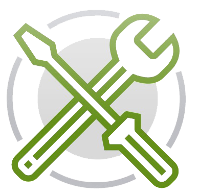
Unsure which hood is right for you?
Try our hood builder!

FINANCING AVAILABLE
CLICK HERE For More Details
Dont see your size or need a custom hood?
Let Us Help You!
Talk to a Specialist
Call Now: 1.800.715.1014
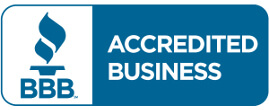



BACKGROUND
On March 11, the American Rescue Plan Act of 2021 created the $28.6 billion Restaurant Revitalization Fund to provide grants for restaurants sustaining financial losses due to the COVID-19 pandemic.
On April 17, the U.S. Small Business Administration (SBA) issued the necessary federal rules, regulations, and a sample application to distribute the grant funds.
This frequently asked questions (FAQ) resource will be updated as the SBA releases information on the Restaurant Revitalization Fund Grant (RRFG) Program.
LEARN MORE
Visit
RestaurantsAct.com
Disclaimer: This content is for informational purposes only, and should not be used as legal, tax, investment, financial, or other advice. This information is of a general nature and does not address the circumstances of any particular individual or entity. The document does not constitute professional and/or financial advice, nor does any information constitute a comprehensive or complete statement of the matters discussed or the law. The reader of the document alone assumes the sole responsibility of evaluating the merits and risks associated with the use of any information before making any decisions based on such information



